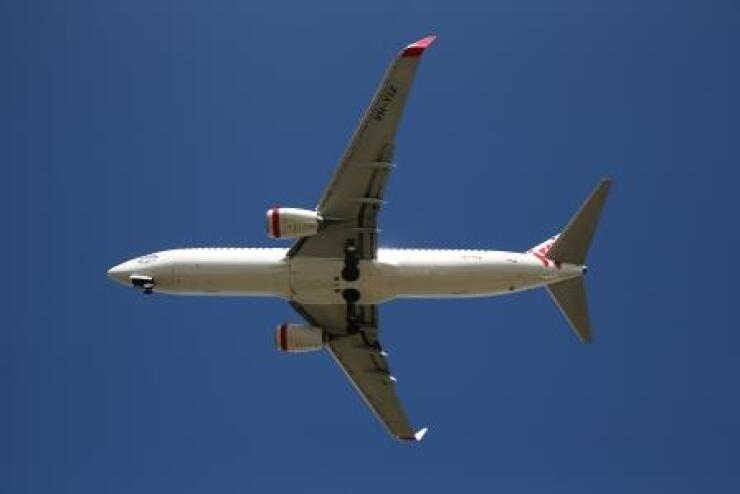Avolon Holdings, the aircraft lessor that acquired CIT Group’s leasing business last year, is tapping the securitization market for $768.4 million.
The securitization trust, Sapphire Aviation Finance I, will issue three tranches of notes with a legal final maturity of 2040. The $633 million senior tranche carries preliminary single-A ratings from Fitch Ratings and Kroll Bond Rating Agency.
Wells Fargo is the structuring lead and lead bookrunner; BNP Paribas Securities and Credit Agricole Securities are joint bookrunners.
Proceeds will be used to acquire a portfolio of 41 mid-life aircraft from Avolon that are on lease to 30 lessees located in 19 countries.
While Avolon is one of the world’s largest aircraft lessors, this is only its second securitization since the financial crisis. It completed the $636 million

Fitch noted that acquiring CIT’s business boosted the age of Avolon’s owned fleet past the company’s typical target of five year. “In our opinion, Sapphire I is another strategy Avolon is utilizing to efficiently manage aging and is consistent with other recent sales to third parties,” the presale report states. “Fitch does not believe the pool represents any sort of negative asset selection.”
In fact, Fitch views the strong quality of the assets as a key driver of its credit ratings. It describes the pool of mid-life A320s and B737s with a 12-year weighted average age as “largely liquid.” The rating agency notes, however, that A330s and B767s, prone to higher downtime and costs in remarketing events, comprise 38.5% of the pool.
Liquidity is important, since 43% of the aircraft will come off-lease from 2018–2020, although several have agreements or letters of intent executed for new leases or extensions.
However, the A320s and B737s face replacement from the A320neo and B737 MAX aircraft, both of which delivered in the past two years. Airbus will also introduce the A330neo later this year to replace current generation A330s. Replacement and competition from other variants are both expected to pressure values over the next decade. Large operator bases and long replacement lead time should insulate the aircraft from these risks.
The credit quality of the lessees is also weak. Most of the initial pool’s 30 airlines are either unrated or speculative-grade credits typical of aircraft ABS. Fitch assumed unrated lessees would perform consistent with either a 'B' or ‘CCC’ Issuer Default Rating (IDR) to reflect default risk in the pool. Ratings were further stressed during future recessions and once aircraft reach Tier 3 classification.
Kroll cites Avolon’s strength as a servicer and the experience of its management as a key rating consideration. The company was founded in May 2010 by an experienced team that has worked together and built two successful aircraft leasing businesses, including RBS Aviation Capital.
Both Fitch and Kroll have some concerns about problems at Avolon's parent company, Bohai; trading in Bohai's shares have been suspended in anticipation of a restructuring by its majority owner, HNA Group. As a result, Kroll believes that Avolon "may enter into strategic partnerships, alliances or change of control transactions that may cause disruption to the servicer and negatively impact the performance of the transaction.
Fitch noted that Avolon plans to pay a $250 million dividend to Bohai and has also taken actions that formally segregate its assets from both Bohai and HNA. Despite risks with its parent, Fitch views Avolon’s near-term liquidity as solid and does not believe ongoing Bohai/HNA concerns will affect Sapphire I.





